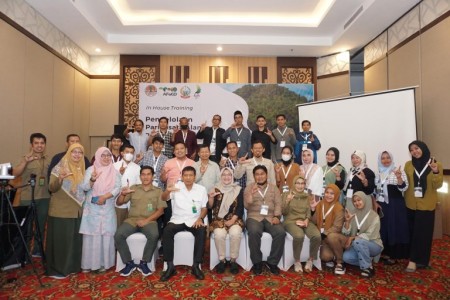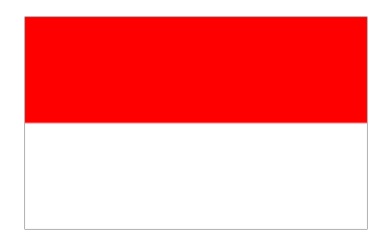Standards for Utilization of Forest Areas, Safeguards for Business Certainty and Nature Conservation Indonesia | 22/05/2023
Utilization of forests that only rely on one type of product has the potential to result in scarcity. This raises concerns for business actors in the forestry sector, namely the depletion of wood production which has an impact on a decrease in raw materials for production, causing many industries to stop operating. After its heyday until 1998, the timber industry slowly receded due to a run out of resources. Based on data from the Central Statistics Agency (2021) shown in Table 1, the number of Forest Concession Rights (HPH) companies in Indonesia continues to decline from year to year. This phenomenon encourages efforts to revitalize forests to achieve sustainable forest management.
Table 1. Data on the Number of HPH Companies by Island Based on the 2019-2021 Valid Decree

Source: Central Bureau of Statistics (bps.go.id)
Several corrective steps have been taken by the government as a breakthrough for the dynamics of developments in the problem of forest utilization and environmental balance. Law Number 11 of 2020 concerning Job Creation (UUCK) was issued to support economic transformation and create new jobs for the community, one of which is through the application of risk-based business licensing and simplification of business licensing mechanisms, including in the forestry sector. UUCK implementation also allows business actors to carry out the development of multiple forestry businesses, which is the implementation of several forestry business activities in the form of area utilization businesses, timber and non-timber forest product utilization businesses, and/or environmental services utilization businesses to optimize forest areas in protected and forest forests. Production.
The government issues business licensing policies as legality given to business actors to start and run businesses. The mechanism for business licensing in forestry administration is regulated in Government Regulation (PP) Number 23 of 2021 concerning Forestry Administration as a form of effort to improve the investment ecosystem and business activities. Forest Utilization Business Licensing Policy (PBPH) aims to regulate and supervise sustainable and efficient use of forests in Indonesia. PBPH is based on the principles of sustainable development which involve economic, social and environmental aspects, and refers to the applicable laws and regulations. In addition, PBPH also stipulates procedures that must be met by entrepreneurs in carrying out forest utilization activities, including waste management, natural resource conservation, and community development.
The approach orientation in business licensing is the transformation of business licensing based on multi forestry businesses. Forestry multi-business schemes are carried out by PBPH holders so that it is possible for business actors to carry out business activities for exploiting areas, utilizing environmental services, and/or collecting/utilizing timber and non-timber forest products. The multi-business forestry model is expected to increase the real value and productivity of forest land, so that it will reduce the rate of forest conversion and have an impact on increasing the welfare of communities living around the forest. The transfer of this non-timber business not only has an impact on the communities around the forest, but can also increase the country's foreign exchange, create new jobs and support sustainable forest management.
To ensure that a type of business complies with the principles of sustainability, it is necessary to develop clear and measurable standards for the use of forest areas. This standard can guard business certainty and natural sustainability. A series of principles governing the utilization of forest areas can be used as a reference for PBPH holders and assessors (verifiers). This principle includes at least three activities, namely preparation, core activities, and monitoring and evaluation. Forest area utilization standards are prepared to determine the technical requirements for forest area utilization activities based on consensus by taking into account safety, security, health, environmental requirements, scientific and technological developments, experience, as well as present and future developments in order to obtain maximum benefits. .
Efforts to formulate regional utilization standards are in line with the duties and functions of the Center for Standardization of Sustainable Forest Management Instruments, the Agency for Standardization of Environmental and Forestry Instruments (BSILHK), namely to support the realization of sustainable forest management through the formulation, development, application and assessment of instrument standards in both the environmental and forestry sectors. One of the challenges is to build a power of standards, namely to build an interlocking system between economic actors and standardizers. Thus, the standards that have been and will be produced by BSILHK will have an impact on businesses in the forestry sector.
Contributor : Darwati, Septiana Intan Purwantari, M Yarzuqh Zakka
















